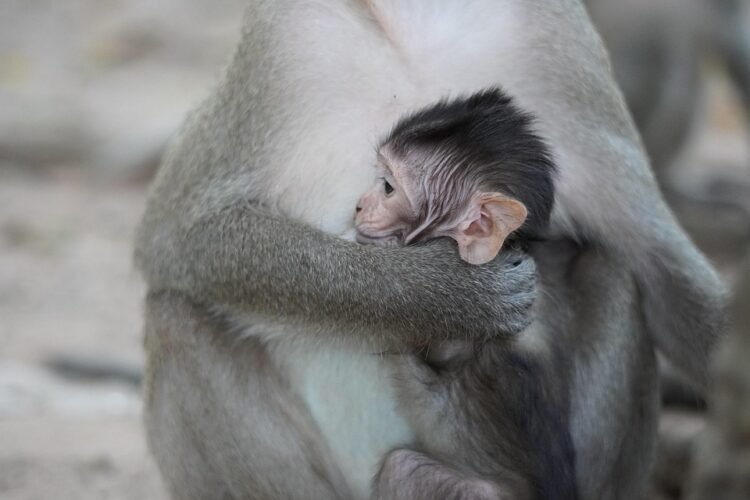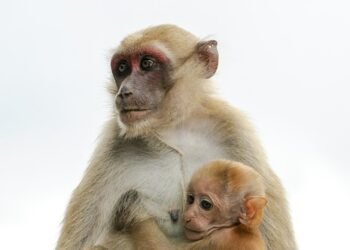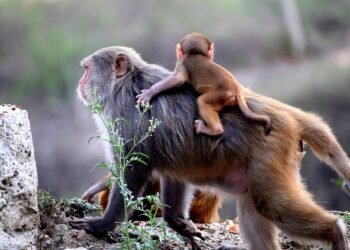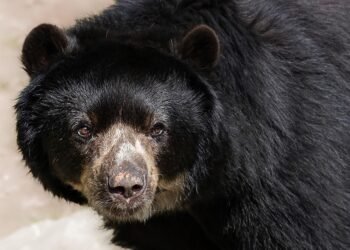Monkey Business: How to Protect Yourself from a Primate Attack
Monkeys are fascinating creatures that can be found in various parts of the world. While they may seem cute and friendly, it’s important to remember that monkeys are wild animals and can be unpredictable. In some cases, they may even become aggressive and attack humans. In this article, we will discuss how to protect yourself from a primate attack and ensure your safety when encountering monkeys in the wild.
Understanding Monkey Behavior
Before we delve into how to protect yourself from a primate attack, it’s important to understand why monkeys may become aggressive. Like all animals, monkeys have their own set of behaviors and instincts that guide their actions. In the wild, monkeys may feel threatened by humans invading their territory, especially if they have young offspring to protect. They may also become aggressive if they feel cornered or if they perceive a human as a potential threat.
How to Avoid a Primate Attack
When encountering monkeys in the wild, it’s crucial to follow these tips to avoid a potential attack:
1. Maintain a Safe Distance
It’s important to give monkeys plenty of space and avoid getting too close to them. By maintaining a safe distance, you can reduce the chances of provoking a monkey and triggering an attack.
2. Do Not Make Direct Eye Contact
Direct eye contact can be perceived as a threat by monkeys. Avoid staring directly at a monkey and instead, try to avert your gaze or look away to show that you are not a threat.
3. Do Not Feed the Monkeys
Feeding monkeys can lead to aggressive behavior, as they may become dependent on human food and associate humans with a potential food source. It’s best to refrain from feeding monkeys and allow them to forage for food in their natural habitat.
What to Do If a Monkey Attacks
If you find yourself in a situation where a monkey is attacking you, it’s important to remain calm and follow these steps:
1. Do Not Run
Running away from a monkey can trigger their predatory instincts and make them more likely to chase after you. Instead, try to slowly back away from the monkey while avoiding direct eye contact.
2. Make Yourself Look Big
If a monkey is approaching you aggressively, try to make yourself look bigger by raising your arms and standing tall. This can help intimidate the monkey and discourage further attacks.
3. Use Noise to Deter the Monkey
Loud noises can startle and deter monkeys from attacking. If you have a whistle or an air horn, use it to scare off the monkey and create distance between you and the primate.
Protective Gear for Primate Encounters
When venturing into areas where monkeys are present, it’s a good idea to bring along some protective gear to ensure your safety:
1. Long-sleeved Clothing
Wearing long-sleeved clothing can help protect your skin from scratches and bites in case of a primate attack. Opt for lightweight, breathable fabrics that will keep you cool in warm weather.
2. Gloves
Thin, durable gloves can provide an extra layer of protection for your hands if you need to defend yourself against a monkey attack. Look for gloves that allow for flexibility and dexterity while still offering protection.
3. Pepper Spray
Carrying pepper spray can be an effective deterrent against aggressive monkeys. Make sure to familiarize yourself with how to use pepper spray safely and responsibly in case of an emergency.
Conclusion
Encountering monkeys in the wild can be a thrilling experience, but it’s important to remember that they are wild animals with the potential to become aggressive. By understanding monkey behavior and following the tips outlined in this article, you can protect yourself from a primate attack and ensure your safety when interacting with monkeys in their natural habitat.
Remember to always respect the animals and their environment, and prioritize your safety above all else when encountering monkeys in the wild.







